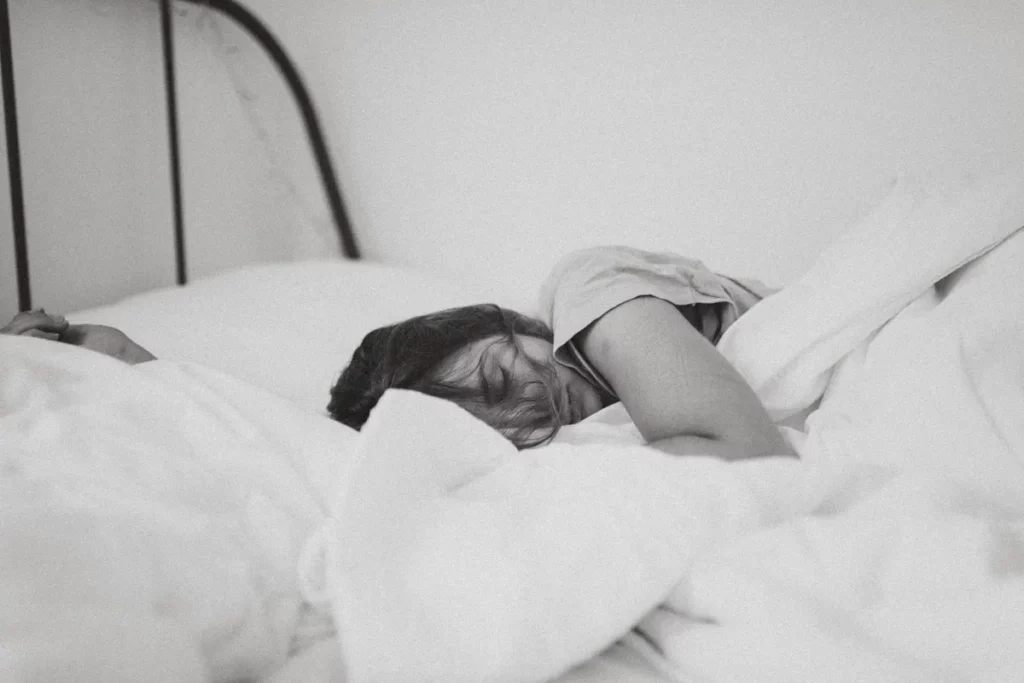If you’re taking Zoloft, you may have experienced a common side effect known as “Zoloft Night Sweats”. This phenomenon, characterized by excessive sweating during the night, can be quite uncomfortable and disruptive to a good night’s sleep.
Zoloft, a popular selective serotonin reuptake inhibitor (SSRI) used to treat depression and other mental health conditions, is not the only medication that can cause this. In fact, night sweats can be a side effect of many other prescription medications.
In this article, we will delve into the causes of Zoloft Night Sweats and explore effective solutions to manage this common side effect. Whether you’re considering starting Zoloft or have been taking it for a while, this guide will provide valuable insights into this often overlooked side effect.
Table of Contents
What is Zoloft?
Zoloft, also known by its generic name sertraline, is a widely used antidepressant medication that belongs to a class of drugs known as selective serotonin reuptake inhibitors (SSRIs). SSRIs work by increasing the levels of serotonin, a neurotransmitter that plays a crucial role in mood regulation, in the brain.
Zoloft is commonly prescribed to treat a variety of mental health conditions including depression, anxiety disorders, post-traumatic stress disorder (PTSD), and obsessive-compulsive disorder (OCD).

Can Zoloft Cause Night Sweats?
Yes, Zoloft can indeed cause night sweats. Night sweats, or excessive sweating during sleep, is a common side effect associated with the use of Zoloft and other SSRIs.
Studies have shown that this side effect occurs in around 10–20% of patients taking these medications. It’s important to note that while night sweats can be uncomfortable and disruptive to sleep, they are not typically dangerous.
However, if night sweats are significantly affecting your quality of life, it’s recommended to consult with your healthcare provider.
How Does Zoloft Contribute to Night Sweats?
Zoloft night sweats happens because the medication has an impact on serotonin levels in the brain. Serotonin is a neurotransmitter that, among other functions, plays a role in regulating body temperature.
When the levels of serotonin in the brain are increased, as is the case when taking Zoloft, it can affect the hypothalamus, the part of the brain responsible for controlling body temperature. This can lead to an increase in sweating, including night sweats.
It’s also worth noting that the onset of night sweats can occur as the body adjusts to the medication and may subside over time as the body becomes more accustomed to the increased serotonin levels.
Other Potential Causes of Night Sweats While Taking Zoloft
While some experience Zoloft night sweats, it’s important to consider that there may be other potential causes as well. One such cause could be serotonin syndrome, a potentially life-threatening condition that can occur when there is an excess of serotonin, a chemical your neurons produce, in your brain. This syndrome can cause symptoms such as agitation, restlessness, confusion, rapid heart rate, dilated pupils, loss of muscle coordination, heavy sweating, and other symptoms.
Another potential cause could be the interaction of Zoloft with other medications. If you’re taking other medications that also increase the levels of serotonin in the brain, the combined effect could potentially lead to an increase in side effects, including night sweats. This is why it’s crucial to inform your healthcare provider about all the medications you’re currently taking, including over-the-counter drugs and supplements.
Other factors such as lifestyle habits and underlying health conditions can also contribute to night sweats. Consuming alcohol or spicy foods, for instance, can trigger night sweats in some people. Conditions like menopause, infections, or certain types of cancer can also cause night sweats.
It’s important to remember that while night sweats can be uncomfortable, they are usually harmless. However, if your night sweats are accompanied by other concerning symptoms, or if they are causing significant distress, it’s important to consult with your healthcare provider to rule out any potential underlying conditions.
Solutions to Zoloft Night Sweats
If you’re experiencing Zoloft night sweats, there are several potential solutions that might help. One option is to discuss with your healthcare provider about the possibility of reducing your dose. A lower dose might still provide the therapeutic benefits of Zoloft while reducing the severity of side effects.
Another option is to consider switching to a different SSRI or even a different class of antidepressant. Different medications have different side effect profiles, and it’s possible that another medication might be equally effective for treating your symptoms without causing night sweats.
In some cases, your body might simply need more time to adapt to the presence of Zoloft. Many side effects of SSRIs tend to decrease over time as your body adjusts to the medication.
In severe cases, your healthcare provider might prescribe medications like terazosin or glycopyrrolate to reduce excessive sweating. These medications work by blocking certain signals in your body that trigger sweating.
Coping with Night Sweats
In addition to the solutions mentioned above, there are several practical strategies that can help you cope with Zoloft night sweats. One of these is to invest in cooling bed sheets and comforters. These products are designed to wick away moisture and help keep your body cool during the night.
Keeping your bedroom cool can also help. You might want to consider using a fan or air conditioner, or keeping your windows open at night if the weather allows.
Certain lifestyle changes can also help manage night sweats. For instance, avoiding spicy foods and alcohol before bed can reduce sweating. Staying hydrated can also help your body regulate its temperature more effectively.
When To Consult Your Doctor
While night sweats can be a common side effect of Zoloft and other SSRIs, it’s important to consult your healthcare provider if they become a significant concern. Here are a few situations where you should seek medical advice:
- Persistent Night Sweats: If your night sweats persist for several weeks or they are not improving despite trying various coping strategies, it’s a good idea to consult your healthcare provider. They can help determine whether a dose adjustment or a switch to a different medication might be beneficial.
- Severe Night Sweats: If your night sweats are so severe that they’re regularly disrupting your sleep or causing significant distress, it’s important to seek medical advice. Severe night sweats can lead to sleep deprivation, which can exacerbate symptoms of depression and anxiety.
- Other Symptoms: If your night sweats are accompanied by other symptoms such as unexplained weight loss, fever, or persistent cough, it’s crucial to consult your healthcare provider. These could be signs of an underlying medical condition that needs to be addressed.
- Concerns About Side Effects: If you have any concerns about the side effects of Zoloft, including night sweats, it’s always a good idea to discuss these with your healthcare provider. They can provide reassurance, offer solutions, or suggest alternative treatment options if necessary.
Remember, your healthcare provider is there to help you navigate your treatment and ensure that it’s as effective and comfortable as possible. Don’t hesitate to reach out to them if you have any concerns about Zoloft night sweats or any other aspect of your treatment.
Frequently Asked Questions
Are Zoloft Night Sweats common?
Zoloft night sweats are common, occurring in around 10–20% of patients.
Why does Zoloft cause night sweats?
Zoloft increases the levels of serotonin in the brain. Serotonin can affect the hypothalamus, which is responsible for regulating body temperature, leading to increased sweating, including night sweats.
How long do night sweats last when taking Zoloft?
The duration of night sweats can vary from person to person. Some people may experience them only briefly, while others may find that they persist for several weeks or longer. In many cases, night sweats decrease over time as the body adjusts to the medication.
Can reducing the dose of Zoloft reduce night sweats?
In some cases, reducing the dose of Zoloft may help to alleviate night sweats. However, this should only be done under the guidance of a healthcare provider.
Are there other medications that can reduce night sweats caused by Zoloft?
In severe cases, medications like terazosin or glycopyrrolate may be prescribed to reduce excessive sweating. These medications work by blocking certain signals in the body that trigger sweating.
Conclusion
Experiencing night sweats while taking Zoloft can be uncomfortable and disruptive, but it’s a common side effect that many people face. Understanding the causes and potential solutions can help you manage this side effect more effectively. Remember, your healthcare provider is your best resource for any concerns about Zoloft night sweats or other aspects of your treatment. Don’t hesitate to reach out to them for guidance and support.
Medical Disclaimer: This article is for informational purposes only and should not be considered professional medical advice. It is always recommended to consult with a healthcare professional before making any changes to your treatment plan, diet, or lifestyle. StopTheNightSweats.com is not responsible for any actions taken as a result of the information provided in this article.
